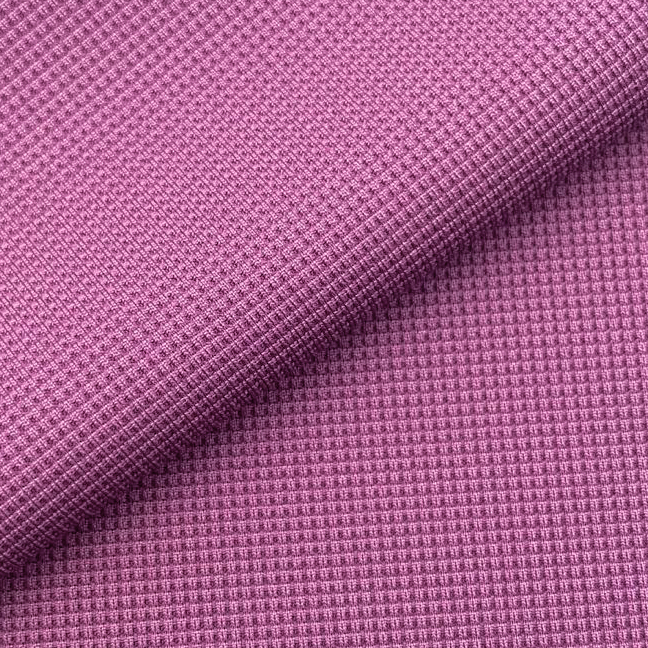The fashion industry has been facing increasing scrutiny regarding its environmental impact and sustainability practices. As a manufacturer of Casual Wear Knitted Fabrics, embracing sustainable production methods can significantly influence the industry and contribute to environmental conservation. Below, we explore the various ways in which the adoption of sustainable practices in producing Casual Wear Knitted Fabrics can make a positive impact.
1. Reduced Carbon Footprint:
Sustainable production practices aim to minimize the carbon footprint throughout the supply chain. By implementing energy-efficient manufacturing processes, using renewable energy sources, and optimizing transportation and logistics, Casual Wear Knitted Fabrics manufacturers can significantly reduce greenhouse gas emissions. This reduction in carbon footprint helps mitigate climate change and its adverse effects on the environment.
2. Water Conservation:
Traditional textile manufacturing processes are notorious for their high water consumption. Sustainable production practices in the Casual Wear Knitted Fabrics industry focus on minimizing water usage and implementing water recycling and treatment systems. By adopting these practices, manufacturers can reduce their water footprint, alleviate pressure on freshwater resources, and contribute to water conservation efforts.
3. Use of Eco-friendly Materials:
Sustainable Casual Wear Knitted Fabrics often incorporate eco-friendly materials, such as organic cotton, recycled polyester, and bamboo fibers. These materials are sourced from renewable resources and have lower environmental impacts compared to conventional fabrics. By using eco-friendly materials, manufacturers can meet the demand for sustainable fashion and reduce the reliance on resource-intensive inputs.
4. Waste Reduction and Recycling:
Sustainable production practices emphasize waste reduction and recycling. In the production of Casual Wear Knitted Fabrics, adopting circular economy principles can lead to decreased fabric waste, as well as the recycling of post-consumer and post-industrial textile waste. Recycling waste materials not only reduces landfill burden but also conserves resources that would otherwise be required for producing new fabrics.
5. Ethical Labor Practices:
Sustainability extends beyond environmental aspects and includes social responsibility. Manufacturers committed to sustainable practices prioritize fair labor conditions, ensure worker safety, and provide fair wages to employees. Ethical labor practices contribute to the overall well-being of workers and foster a positive image for the company in the eyes of consumers.
6. Extended Product Lifespan:
Sustainable Casual Wear Knitted Fabrics are often made with a focus on durability and quality. Garments produced with higher-quality materials and craftsmanship are likely to have an extended lifespan, reducing the need for frequent replacements. This approach promotes conscious consumption, reduces waste, and encourages a shift away from fast fashion.
7. Consumer Education and Awareness:
Manufacturers can play a vital role in educating consumers about sustainable fashion and the environmental impact of their choices. By providing transparent information about the sourcing and production processes of Casual Wear Knitted Fabrics, manufacturers empower consumers to make informed and eco-conscious decisions when purchasing clothing.
8. Influence on Industry Trends:
As sustainable practices gain momentum, manufacturers of Casual Wear Knitted Fabrics can influence industry trends by setting an example and demonstrating the feasibility of eco-friendly production methods. By incorporating sustainability into their business model, manufacturers can encourage other players in the fashion industry to follow suit and adopt more sustainable approaches.
9. Positive Brand Image:
Embracing sustainability in Casual Wear Knitted Fabrics production can enhance a company's brand image and reputation. Consumers are increasingly drawn to brands that prioritize environmental conservation and social responsibility. By showcasing their commitment to sustainability, manufacturers can attract eco-conscious consumers and gain a competitive edge in the market.
In conclusion, the adoption of sustainable practices in the production of
Casual Wear Knitted Fabrics has a profound impact on the fashion industry and contributes to environmental conservation. By reducing the carbon footprint, conserving water, using eco-friendly materials, minimizing waste, promoting ethical labor practices, and extending product lifespans, manufacturers play a critical role in driving positive change. Furthermore, by educating consumers, influencing industry trends, and building a positive brand image, manufacturers can foster a more sustainable and responsible fashion ecosystem, creating a brighter and more sustainable future for the industry and the planet as a whole.
 PURPLE WAFFLE FABRIC
PURPLE WAFFLE FABRIC
